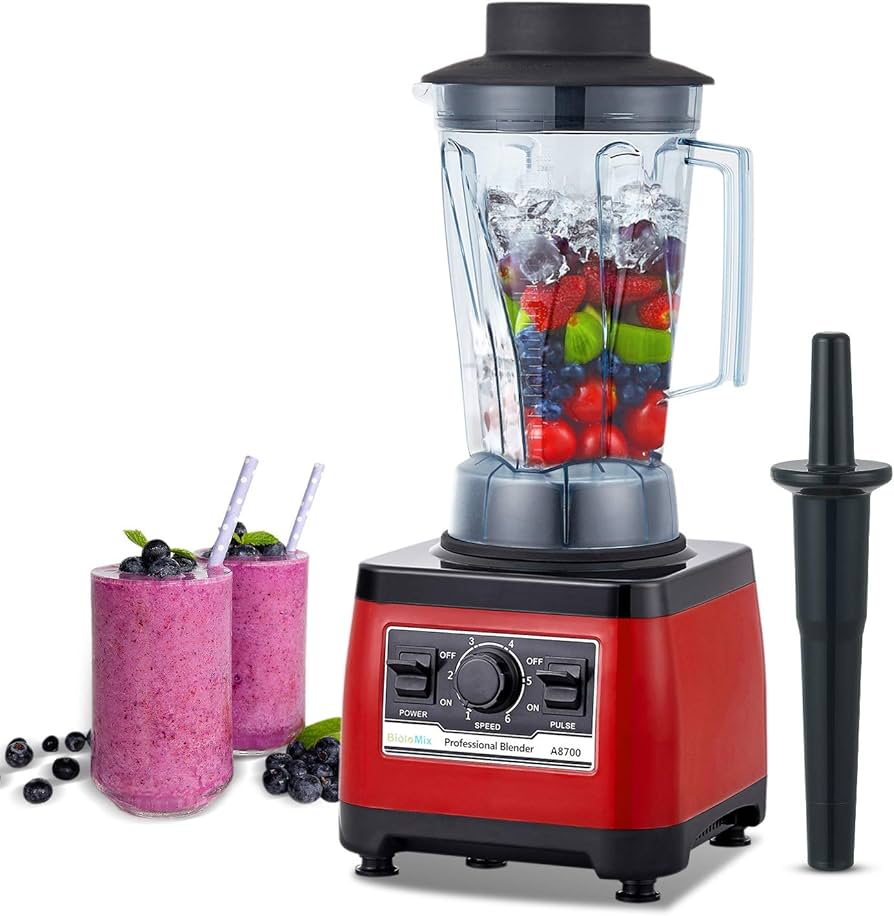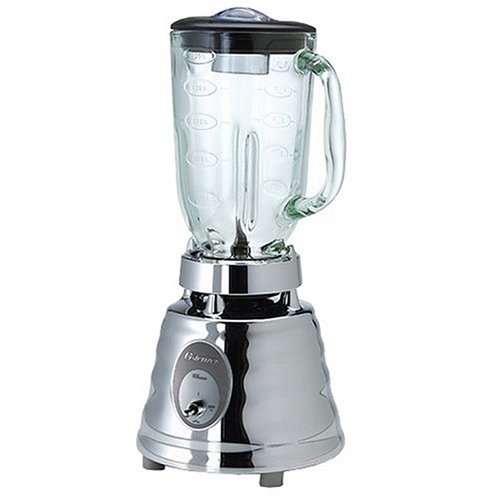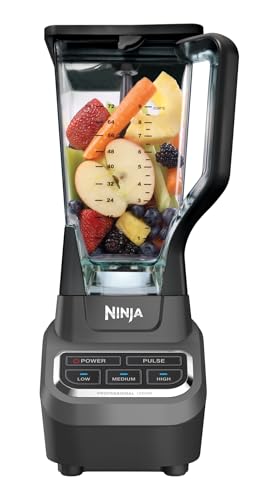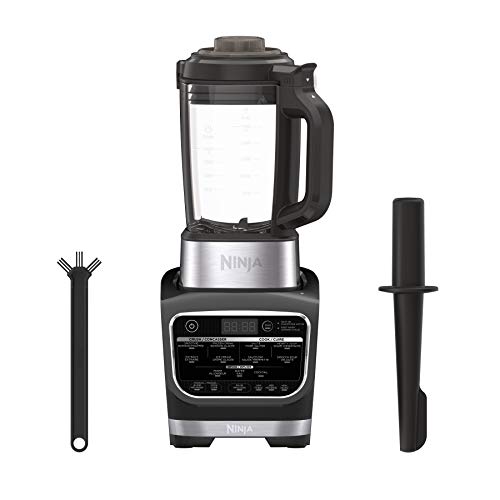Blender Not Crushing Ice? Unleash Chilling Efficiency!
Your Blender might not be crushing ice effectively due to dull blades or a weak motor. Ensure you’re using a model designed for this task.
Dealing with a blender that won’t crush ice can be frustrating. While it’s an essential tool for creating smoothies, frozen drinks, and other icy treats, not all blenders are up to the challenge. Key factors for ice crushing success include blade sharpness, motor power, and the durability of the blender’s design.
Some models are specifically marketed for their ice-crushing capabilities, featuring robust motors and specially designed blades. Always check the manufacturer’s guidelines to confirm that your blender can handle ice without risking damage. Regular maintenance and correct usage also play a vital role in a blender’s performance with hard ingredients like ice cubes. Choose a blender built to cater to your icy concoctions and maintain it well for the best results.
Chilled Expectations Vs. Reality
Imagine a hot summer day, and you’re ready for a cold smoothie. Your blender sits on the countertop, promising icy refreshment. Reality hits when you press ‘blend,’ and your ice remains stubbornly whole. Let’s explore why your blender is not living up to those chilled expectations.
Anticipated Performance
You’ve seen blenders turn ice into snow. Ads show blenders crushing ice with ease. You expect the same.
- Quick ice crushing—minutes to perfect texture
- Blades spin fast, breaking ice instantly
- Powerful motors stand up to the toughest cubes
Your blender should deliver smooth, icy drinks every time. But what happens when it doesn’t?
When Ice Just Won’t Crush
Understanding why your ice won’t crush can solve many issues.
| Problem | Possible Reason | Solution |
|---|---|---|
| Dull blades | Blades can’t cut through | Sharpen or replace blades |
| Weak motor | Motor lacks power | Consider a more robust blender |
| Overfilled pitcher | Too much for blades to move | Reduce contents and try again |
Many times, a simple fix gets your blender back on track. Remember to check the manual, as different models have specific ice-crushing instructions.

Credit: www.facebook.com
Investigating The Culprit
Blender won’t crush ice? It’s frustrating when you expect a smoothie but get a chunky mess. Let’s solve this icy puzzle and get back to those perfect chilled drinks.
Ice Too Hard Or Too Large
Not all ice is blender-friendly. Think small, think manageable. Large cubes or tough, clear ice can jam blades. Some tips:
- Use smaller ice cubes.
- Bag and crush with a rolling pin first.
- Consider pre-crushed ice from the freezer section.
Blender Blade Bluntness
Dull blades just don’t cut it. Literally. Sharp blades break ice easily. Dull ones struggle. The fix:
- Check your blender’s blade.
- Sharpen or replace if needed.
- Regular maintenance keeps blades ready for ice.
Motor Power Insufficiency
Weak motor? It might stutter with tough tasks like ice. Power matters. When choosing a blender:
| Motor Power | Ideal Task |
|---|---|
| 200-400 watts | Soft fruits, liquids |
| 500-700 watts | Vegetables, frozen fruits |
| 1000+ watts | Crushing ice, hard foods |
Check the blender’s wattage. Aim for 1000+ watts for ice.
Prep Work Before The Blend
Getting the perfect blend starts with what you do before hitting that blend button. It’s vital to prepare your ingredients correctly to avoid a blender mishap, especially when dealing with something as hard as ice. Below are the steps to guarantee your icy ingredients transform into the perfect chilly concoction.
Correct Ice Cube Size
Selecting the correct ice cube size is the first step in preparing for a successful blend. Not all blenders can handle large, hard chunks of ice. Aim for ice cubes that are:
- Small – easier for the blades to crush.
- Uniform – for consistent blending.
- Regular-shaped – no odd shapes that can jam your blender.
Thawing Techniques
Thawing your ice slightly can make a big difference. Here are simple methods:
| Technique | Time |
|---|---|
| Room Temperature | 3-5 minutes |
| Fridge Thawing | 10-15 minutes |
| Water Dip | 30 seconds |
These methods ensure the ice is not overly hard for blending without melting too much.
Pre-blending Procedures
Here are steps to prepare your blender and ice for the perfect crush:
- Inspect your blender’s blade. Ensure it’s sharp and secure.
- Place the ice inside the blender. Don’t overfill.
- Add some liquid. It helps the blades move easily.
- Pulse before full blending to break large pieces.
Careful pre-blending prep leads to a smooth, icy blend every time.

Credit: m.facebook.com
Tweaking Blender Settings
Encountering trouble with ice not crushing properly in your blender?
Adjusting your blender settings can turn the tides.
Below are straightforward tweaks to help you attain that perfect icy blend.
Finding The Right Speed
Speed is key when it comes to pulverizing ice.
Begin with a low setting.
Gradually increase to the highest speed.
This ensures the ice breaks down completely.
Pulse Function Magic
Use the pulse function to chop ice swiftly.
- Short pulses break large chunks.
- Wait for a few seconds in between pulses.
This method prevents motor strain and achieves better results.
Blending Time Tips
Long blending can cause watery drinks.
Short bursts are the secret:
- Blend for a few seconds.
- Stop.
- Repeat.
Quick cycles prevent overheating and keep the texture perfect.
Maintaining Your Ice-crushing Ally
Keep your blender running smoothly with simple maintenance. Ensuring your device crushes ice perfectly every time is easy. Follow these tips to maintain its top performance. Proper care extends its life and efficiency.
Regular Cleaning Rituals
Cleanliness is key for your blender’s performance. Residue can dull blades and affect crushing power.
- Disassemble all removable parts after use. This includes the jar, blades, and lid.
- Use warm, soapy water to clean parts. Rinse them under running water.
- For stubborn residue, blend water with a drop of dish soap. Run the machine for a minute. Rinse thoroughly.
- Let all parts dry completely before reassembling. This prevents mold and odors.
Blade Sharpening Guide
Sharp blades mean better ice-crushing. Dull blades struggle and can lead to motor damage.
- Check blades every six months for dullness.
- If blades are dull, use a professional sharpening service. Do not attempt to sharpen blades yourself.
- Replace your blender blades if they are too worn to sharpen.
When To Service Or Replace
| Sign | Action |
|---|---|
| Motor overheating | Contact manufacturer for service. |
| Poor performance | Check warranty, consider service or replacement. |
| Loud, unusual noises | Service may be required. If persistent, replace. |
| Cracked jar or container | Replace jar immediately. Avoid use until then. |
Proper maintenance goes a long way. It ensures your blender remains a reliable kitchen ally. It’s vital for safety and performance. Don’t wait for issues to worsen.
Remember to address issues quickly. This protects your investment and ensures ongoing, efficient ice crushing.

Credit: www.amazon.com
Pro Blending Alternatives
Having trouble with your blender not crushing ice? Fear not! There are plenty of proven alternative methods to get the perfect crushed ice for your smoothies, cocktails, or desserts. Let’s explore manual and professional techniques to keep your icy desires fulfilled.
Manual Ice-crushing Solutions
Think outside the blender. You don’t always need high-tech gadgets for crushing ice. Simple, manual methods can be just as effective.
- Use a mallet: Wrap ice cubes in a clean tea towel or place them in a sturdy plastic bag. Hammer away until reaching the desired consistency.
- Leverage a manual ice crusher: This tool is designed specifically for the job and it gives you control over the size of the ice chunks.
Professional Blending Equipment
Quality counts in crushing ice. Professional blending equipment excels where others may falter. Assess your options:
| Equipment | Benefits | Recommended For |
|---|---|---|
| High-Power Blenders | Durable, fast, and consistent | Businesses, frequent use |
| Commercial Ice Crushers | Efficient, uniform ice pieces | Bars, events, large gatherings |
Investing in professional blending equipment means reliability and perfection every time. For crushing ice, the robust motor and sharp blades make a considerable difference.
Frequently Asked Questions For Blender Not Crushing Ice
Why Isn’t My Blender Crushing Ice Effectively?
The blender might not be powerful enough, or the blades could be dull. Ensure that your blender has at least 600 watts of power and that the blades are sharp and in good condition. Additionally, using smaller ice cubes can help.
Can All Blenders Crush Ice?
Not all blenders are designed to crush ice. Check if your blender has an ice-crushing setting or blade. Typically, blenders with a motor power of 600 watts or more can crush ice efficiently.
How Can I Maintain My Blender For Ice Crushing?
To maintain your blender for ice crushing, regularly sharpen the blades and clean the blender after every use. Also, avoid blending large, hard pieces of ice to prevent damage to the motor or blades.
What Speed Setting Is Best For Crushing Ice?
Use the highest speed setting for crushing ice to achieve the best results. Start with a pulse mode to break down larger pieces and then switch to high speed to create a fine, consistent texture.
Conclusion
Facing trouble with your blender not crushing ice can be frustrating. Remember to inspect the blades, check the motor power, and ensure proper use for icy tasks. With the right maintenance and operation, your blender should get back to creating perfectly crushed ice for your enjoyment.
Stay cool and blend on!






